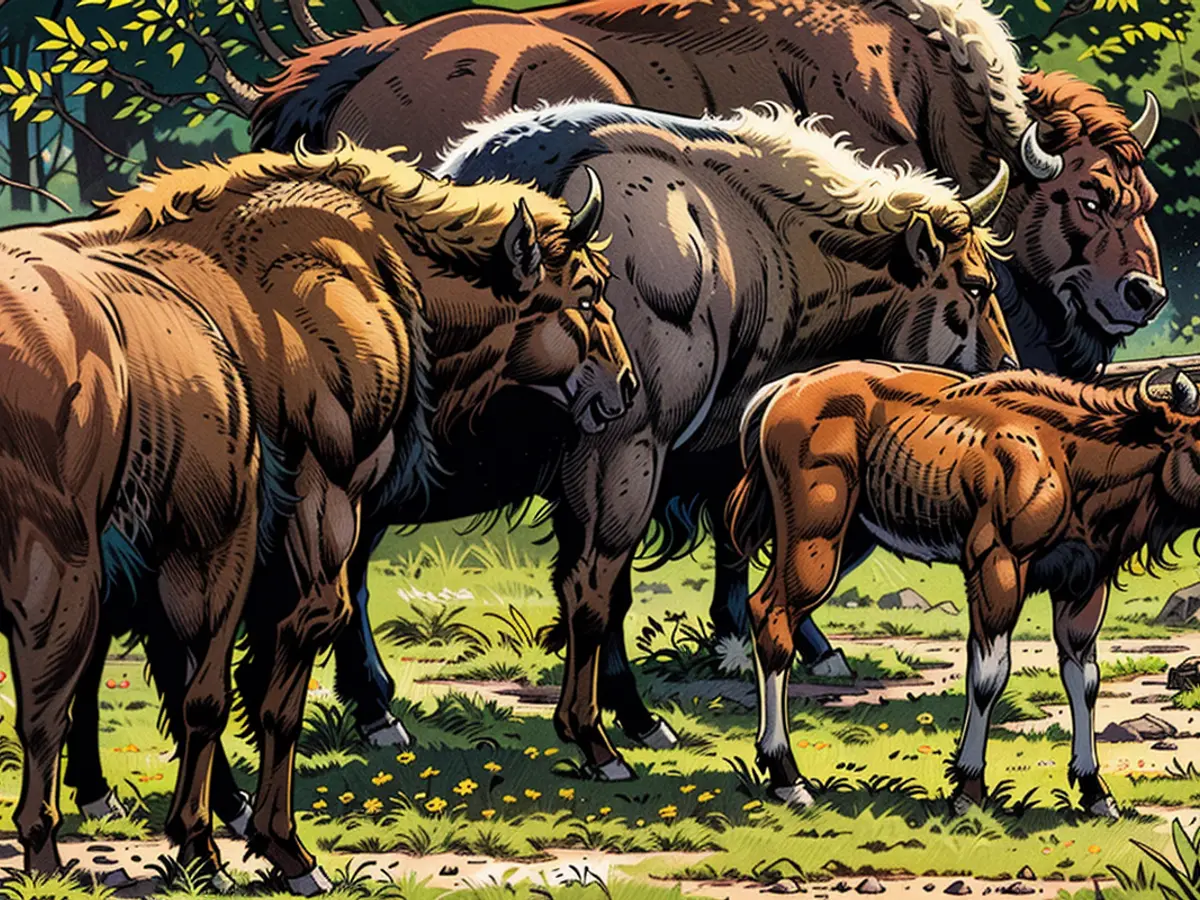- La Asociación Federal para la Protección del Medio Ambiente y la Naturaleza Alemana (BUND) busca obtener la liberación judicial de la manada de Wisents que actualmente se encuentra encerrada en Bad Berleburg, ya que creen que los animales se encuentran en una situación peligrosa debido a que viven en espacios reducidos.
- Según Holger Sticht, presidente estatal de la asociación de protección de la naturaleza de Renania del Norte-Westfalia, albergar a 40 Wisents en solo 24 hectáreas no es adecuado para su mantenimiento adecuado.
- Los animales se encuentran encerrados sin base legal en el recinto y la Asociación Ha filing an emergency application with the Administrative Court of Arnsberg for their release by way of an interim order.
- La liberación es crucial para prevenir la deterioración adicional de la salud de los animales, ya que el espacio estrecho aumenta el riesgo de enfermedades y infestaciones parásitas.
- La BUND también se preocupa de que el distrito de Siegen-Wittgenstein transporte a algunos de los Wisents a parques zoológicos animales en Europa, lo que sería ilegal desde la perspectiva de la BUND.
- La disputa sobre la manada de Wisents se remonta al 2013, cuando los animales fueron liberados en la naturaleza como parte de un proyecto de protección de la fauna notable en el Rothaargebirge, Renania del Norte-Westfalia.
- Sin embargo, como la manada creció y causó daños significativos a los árboles, se produjo una larga y sin resolver disputa entre diversas partes, incluyendo el distrito de Siegen-Wittgenstein y la administración de Arnsberg.
- En marzo de 2024, el distrito de Siegen-Wittgenstein anunció que había transportado a los 40 animales a un nuevo recinto de gestión en Bad Berleburg, lo que efectivamente puso fin a la fase de liberación.
Bienestar animal - BUND quiere que se libere a los bisontes de la valla de Rothaarsteig
Lunes, 2 de julio de 2023Miércoles, 5 de julio de 2023Jueves, 6 de julio de 2023Viernes, 7 de julio de 2023Sábado, 8 de julio de 2023Domingo, 9 de julio de 2023Lunes, 10 de julio de 2023
```markdown
The German Environmental Protection Association (BUND) intends to achieve the judicial release of the animals from their enclosure in Bad Berleburg through legal means.
Precarious Situation for the Wisents
Holger Sticht, North Rhine-Westphalia state chairman of the nature protection association, stated to dpa inquiry on Tuesday that "the animals are in a precarious situation. Around 40 Wisents on 24 hectares is too small for a species-appropriate keeping."
The strictly protected animals are being held without legal basis in the enclosure. Sticht warned that "the situation will inevitably get worse, there is a risk of diseases and parasite infestations." Almost all cows are pregnant, and the calves are expected at the end of August. The Wisents no longer have natural feeding opportunities within the enclosure.
Legal Action
The BUND has filed an emergency application with the Administrative Court of Arnsberg for the release of the animals by way of an interim order. A decision may fall as early as July, according to the BUND. Already in April, a main proceeding lawsuit was filed to "end the unlawful detention" of the animals. It is important to prevent deaths - also in view of territorial fights in the small enclosure. The BUND is concerned that the Siegen-Wittgenstein district may create facts and transport the Wisents to other animal parks in Europe, which would be unlawful from the BUND's perspective.
Background and History of the Herd
The Wisents were released into the wild as part of an internationally noted wildlife protection project eleven years ago. Initially, there were eight animals, the only free-living herd in Germany. They were released in the Wittgensteiner Land in the Rothaargebirge - based on a contract between a former caretaker association, the Siegen-Wittgenstein district, and the Arnsberg district administration. However, the herd had grown significantly, wandered far beyond the planned project area, and caused significant damage to trees according to forest farmers.
After a long, paralyzing dispute and search for solutions, no perspective for saving the project could be seen by the end of 2023. In March 2024, the Siegen-Wittgenstein district announced that 40 animals were now living "in a newly constructed, approximately 25 hectare large management enclosure on the territory of the city of Bad Berleburg, so that the release phase is currently terminated".
Previously, the former environmental ministers Ursula Heinen Esser (CDU) and Johannes Remmel (Greens) had recommended at a roundtable that the wandering herd be quickly caught and reduced to 20 to 25 animals - that is, several Wisents be transported to herds at other locations in Europe. In addition, the owner of the land, over which the Wisent territory in the Siegen-Wittgenstein district was to be located, according to the district's statements, was no longer willing to make his land available.```








